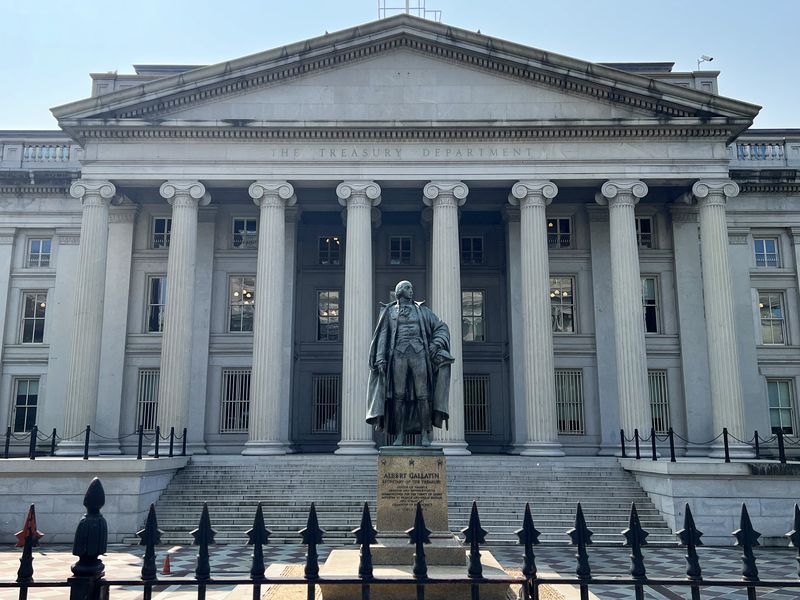Polymarket Resolves Presidential Election Contract
-
Polymarket has resolved its Presidential election contract, a $3.6 billion market that brought prediction markets to the mainstream.
-
The market was resolved just before 11 am eastern time, a few hours after the Associated Press and NBC called the election for Donald Trump.
-
Market rules required the Associated Press, NBC, and FOX News to all call it. Fox News’ Decision Desk called it first.

01:35
Why Bitcoin Will Be the Winner Regardless of U.S. Election Results

02:25
DOGE Surges on U.S. Election Day; Bitcoin ETFs Shed $541M and Mt. Gox Moves $2.2B BTC

18:56
Election Night Insights: Prediction Markets Don’t Tell the ‘Full Story,’ Mark Connors Says

01:09
U.S. Recession Signal Flares From 10-Year and 3-Month Yield Spread
Republican Donald Trump’s historic reelection as U.S. president brought to a close Polymarket’s contract asking users to predict the outcome of the 2024 election, which saw more than $3.6 billion in volume flow through its virtual pipes.
The contract was resolved just before 11 a.m. ET, when the Associated Press and NBC called the election for Trump. Fox News was the first major network to project Trump as the winner, a little after 1:45 a.m. ET, after he won the swing states of North Carolina, Wisconsin, Pennsylvania, and Georgia.
The gap between the time when the market conditions were met and when the contract was resolved was because a resolution had to be proposed on UMA, Polymarket’s current oracle and resolution source. UMA’s dispute resolution system allows anyone to challenge a proposed market outcome by posting a bond during a 2-hour challenge period. If disputed, UMA token holders vote to determine the final resolution.
:format(jpg)/cloudfront-us-east-1.images.arcpublishing.com/coindesk/FEYJTMGSUREALGKJNBYGNY2ZFI.jpg)
On-chain data shows that a French financial services professional, who is offering only the name Theo as a means of identification, was the largest winner of the evening with a profit of over $47.5 million across the Presidential election contract, the popular vote contract, and various swing state markets.
This French whale’s method of registering multiple accounts on the site, all with pro-Trump positions, was a brief source of controversy as critics of prediction markets believed it was a form of dark money trying to influence mindshare.
In an interview with the Wall Street Journal in early November, Theo sought to debunk such claims by saying they were engaging in “high-conviction” trades by putting the majority of their available liquid assets on the line. The reluctance to go public, they explained to the Journal, was to keep it secret from friends and family.
Aside from Theo’s multiple accounts, Polymarket bettor ‘zxgngl,’ who joined the platform just last month, won the second most out of any user on the platform, with an $11.4 million gain.
While the success of Polymarket’s presidential election contract is credited with raising mainstream awareness of prediction markets in general, and many see it as a more accurate form of forecasting rather than traditional polling, Rajiv Sethi, Professor of Economics at Columbia’s Barnard College, and author of the blog Imperfect Information, calls for caution.
“The question of whether prediction markets are more accurate on average than statistical models can only be answered with data, it cannot be answered by logic alone,” he wrote in an email to CoinDesk. “We need to look at individual state outcomes, the popular vote, congressional races, and all other events for which models and markets were simultaneously generating forecasts. And we also need to compare markets with each other to discover what designs work best.”
Sethi suggests that factors like transaction observability, KYC requirements, participation restrictions, and position limits impact prediction markets, and that analyzing these effects will require careful, ongoing data study.
On-chain data via Dune shows that, as of early November, 73.8% of Polymarket’s volume had come from election-related betting.
Edited by Sheldon Reback.
Disclosure
Please note that our
privacy policy,
terms of use,
cookies,
and
do not sell my personal information
have been updated
.
CoinDesk is an
award-winning
media outlet that covers the cryptocurrency industry. Its journalists abide by a strict set of
editorial policies.
CoinDesk has adopted a set of principles aimed at ensuring the integrity, editorial independence and freedom from bias of its publications. CoinDesk is part of the Bullish group, which owns and invests in digital asset businesses and digital assets. CoinDesk employees, including journalists, may receive Bullish group equity-based compensation. Bullish was incubated by technology investor Block.one.
:format(jpg)/s3.amazonaws.com/arc-authors/coindesk/ff7c302f-d3ab-4905-92e1-2f7f5106d13c.png)









